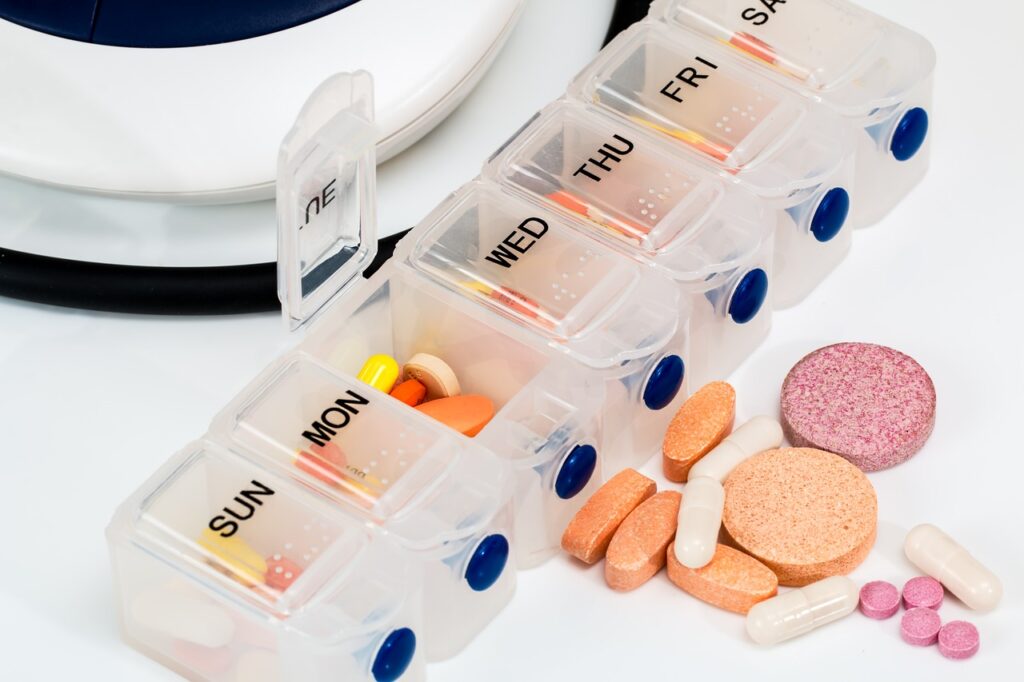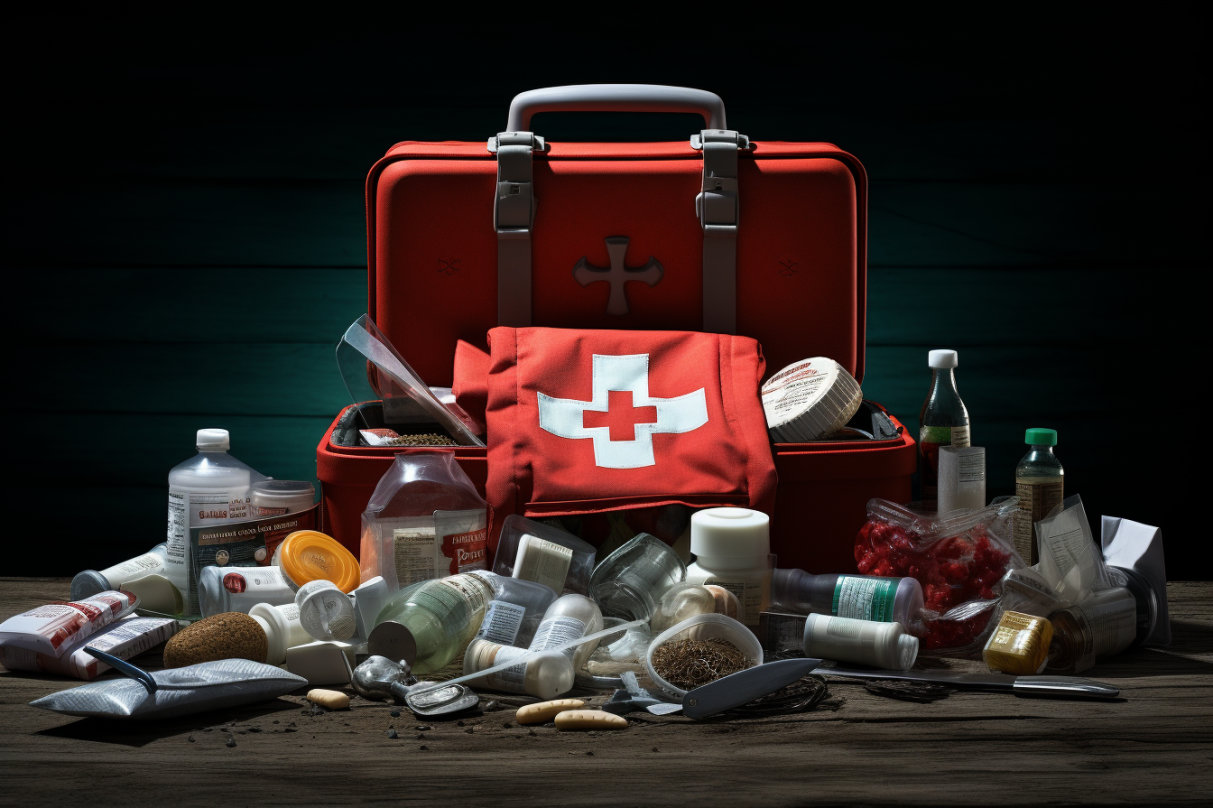Wondering, “Do I need to bring my own medications and first aid supplies to cruise?” . After all, you don’t want to end up with a health problem, a medical emergency, or a lack of essential care on board. In this detailed guide, we’ll address this question and provide valuable insights to ensure your cruise experience is smooth and worry-free.
Table of Contents
Understanding Cruise Health Essentials
Cruises offer a delightful blend of relaxation, adventure, and exploration. However, it’s crucial to consider your health needs before you embark on your journey. Here are seven reasons why bringing your own medicine and first aid supplies is imperative:
1. Cruise ships typically have medical facilities, but they might not stock specific medications or supplies.
Cruise ships are required to have medical facilities that can provide basic care and emergency services to passengers and crew members. However, these facilities may not have all the medicine or supplies that you need for your specific health condition or situation. For example, they may not have your prescription drugs, your preferred painkillers, your allergy medication, or your wound dressing. Bringing your own medications and first aid supplies ensures that you have access to essential drugs and necessities tailored to your requirements.
2. Bringing your own medications and first aid kit prevents delays in receiving essential care.
Cruise medical centers can be busy, especially during peak hours or when there is a large number of passengers on board. If you need medical attention, you may have to wait in line or make an appointment. Having your own medicine and first aid kit can prevent delays in receiving essential care, especially if you have a minor ailment or injury that can be treated by yourself or with the help of a travel companion. Personalized medications and first aid supplies cater to your unique health needs, ensuring prompt attention in emergencies.
3. Having your medications and first aid supplies guarantees consistency in your treatment, especially if you have specific medical conditions.
When exploring various ports of call, you may encounter different healthcare standards and availability. Depending on the destination, you may not find the same quality or quantity of medical services or products that you are used to at home. Having your own medications and first aid supplies guarantees consistency in your treatment, especially if you have specific medical conditions that require regular or special care. For example, if you have diabetes, asthma, or heart disease, you may need to monitor your blood sugar, inhaler, or medication levels frequently. Bringing your own supplies ensures that you can manage your condition effectively, maintaining stability throughout the cruise.
4. By bringing your medications, you avoid the risk of allergic reactions from unfamiliar brands or formulations.
If you run out of your medications or need new ones during the cruise, you may have to buy them from the ship’s pharmacy or a local store. However, these sources may not have the same brand or formulation that you are used to or prescribed by your doctor. Using unfamiliar medications may cause allergic reactions or side effects that can worsen your health condition or affect your cruise experience. By bringing your own medicine, you avoid the risk of allergic reactions from unfamiliar brands or formulations. You also ensure that you follow the dosage and instructions given by your doctor.
5. Individuals with chronic illnesses require a consistent supply of medications.
Individuals with chronic illnesses such as hypertension, arthritis, or depression require a consistent supply of medications to maintain their health and well-being. Running out of medicine or skipping doses can have serious consequences for their physical and mental health. For example, missing a dose of blood pressure medication can increase the risk of stroke or heart attack. Missing a dose of antidepressant medication can trigger mood swings or suicidal thoughts. Bringing your own medications ensures that you have enough supply for the duration of the cruise and beyond. You also avoid the hassle and cost of refilling prescriptions abroad.
6. Basic over-the-counter medications like pain relievers, motion sickness pills, and common first aid items are vital.
Even if you don’t have any chronic illnesses or specific health conditions, it’s still advisable to bring some basic over-the-counter medications and common first aid items for minor ailments or injuries that may occur during the cruise. For example, pain relievers can help with headaches, muscle aches, or menstrual cramps. Motion sickness pills can help with nausea, vomiting, or dizziness caused by the ship’s movement. Common first aid items such as bandages, antiseptic wipes, or pain relief cream can help with cuts, scrapes, or burns. Having these items on hand saves you from inconvenience and discomfort and allows you to enjoy your cruise without interruptions.
7. Lastly, having your medications and first aid supplies brings peace of mind.
Finally, one of the most important reasons to bring your own medicine and first aid supplies is that they bring peace of mind. You can focus on making wonderful memories instead of worrying about unexpected health issues, ensuring a stress-free and enjoyable vacation. You can also be prepared for any emergencies or contingencies that may arise during the cruise, such as delays, cancellations, or evacuations. Having your own supplies gives you a sense of control and confidence in your cruise experience.

FAQs About Bringing Medications and First Aid Supplies on a Cruise
Here are some frequently asked questions and answers about bringing medications and first aid supplies on a cruise:
Q: How do I pack my medications and first aid supplies for a cruise?
A: You should pack your medications and first aid supplies in a clear, zippered bag that is easy to access and identify. You should also label your bag with your name, cabin number, and emergency contact information. You should pack your bag in your carry-on luggage if possible, as it may be inspected by security or delayed by luggage delivery. You should also keep a list of your medications and their dosages, as well as a copy of your prescriptions and a doctor’s note for hassle-free travel.
Q: What are the best brands or models of medications and first aid supplies for a cruise?
A: The best brands or models of medications and first aid supplies for a cruise are the ones that suit your personal preferences and needs. However, some general tips to consider are:
- Choose medications that are effective, safe, and familiar to you. Avoid experimenting with new or unfamiliar brands or formulations that may cause adverse reactions or interactions.
- Choose first aid supplies that are durable, sterile, and easy to use. Avoid cheap or low-quality items that may break, leak, or expire.
- Choose items that are compact, lightweight, and portable. Avoid bulky or heavy items that may take up too much space or weight in your luggage.
- Choose items that are versatile, multi-purpose, and convenient. Avoid items that are single-use, disposable, or require batteries or electricity.
Some examples of popular brands or models of medications and first aid supplies for a cruise are:
- Advil or Tylenol for pain relief
- Dramamine or Bonine for motion sickness
- Benadryl or Claritin for allergies
- Pepto-Bismol or Imodium for diarrhea
- Neosporin or Polysporin for wound healing
- Band-Aid or Curad for bandages
- Bactine or Hydrogen Peroxide for antiseptic
- Cortizone or Aloe Vera for skin irritation
Q: Are there any special considerations for bringing medications and first aid supplies on a cruise?
A: Yes, there are some special considerations for bringing medications and first aid supplies on a cruise. Some of them are:
- Check the expiration dates of your medications and first aid supplies before you pack them. Dispose of any expired or damaged items and replace them with new ones.
- Check the storage instructions of your medications and first aid supplies before you pack them. Store them in a cool, dry, and dark place away from heat, moisture, and sunlight. Use insulated containers or ice packs if needed.
- Check the legal status of your medications and first aid supplies before you travel. Some items may be restricted or prohibited in some countries or regions due to customs regulations or drug laws. Obtain the necessary permits or prescriptions if needed.
- Check the availability and accessibility of your medications and first aid supplies during the cruise. Some items may be sold out or hard to find on board or at the ports of call. Stock up on enough supply for the duration of the cruise and beyond.
Conclusion
In conclusion, bringing your own medicine and first aid supplies is essential for a safe and enjoyable cruise experience. By following the tips and recommendations in this guide, you can ensure that you have everything you need to take care of your health needs during the cruise. You can also avoid any inconvenience, discomfort, or risk that may arise from using unfamiliar or incompatible products or services. You can also enjoy peace of mind knowing that you are prepared for any emergencies or contingencies that may occur during the cruise.
Reference:
Cruise Critic: Do I Need to Bring My Own Medications and First Aid Supplies to Cruise?





